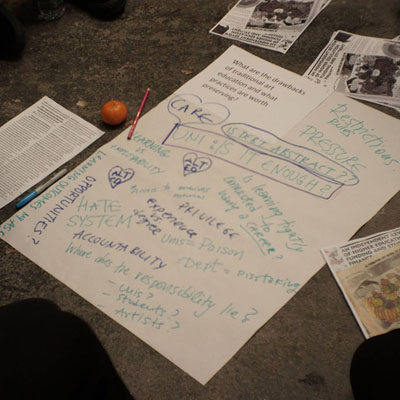Something for Everybody
Many thanks to everyone who came along to our events in February. We’re thrilled to welcome Eva Ruschkowski as the new Symposium book club coordinator. A very special to thanks to her for facilitating the book club on Claire Bishop’s Artificial Hells last month.
This Friday, 8 March, 7-9pm we’re discussing the chapter on Easter Island in Jared Diamond’s book Collapse: How Societies Choose to Fail or Survive. This book club will be facilitated by Tere Chad and Alter Us. Please follow the links for more info, to download the text and book your place. If you would like to facilitate the book club in future please visit the page for more info and come along to get involved.
Many thanks to everyone who came along to the launch of the Radical Pedagogy Reading Group. It was great to hear about everyone’s practice and particular interest in radical pedagogy and alternative art education. There was such a diversity of perspectives and questions, we’re very excited at the prospect of collaborating and learning together. The next session will take place on 24 March, 2-4pm at the Alternative Art School Weekender, a three-day festival and art school organised by TOMA (The Other MA) at Ugly Duck from Fri to Sun, 22-24 March. We’ve put an excellent programme together, check out the website for more details and come along.
On Saturday, 23 March, 12-4pm we’re running a collaborative DIY workshop at the festival to collect ideas on How To Start Your Own Art School in a handy and entertaining guide. Come along with your tips, ideas, stories, anecdotes, advice and full-blown manifestos! We will use all kinds of techniques, including collage, drawing, calligraphy and cut up poetry to produce A6 zine (105mm x 148mm). Materials and tools will be provided but you are welcome to bring your own. If you can’t come along to the workshop you can send your readymade page beforehand to info@artandcritique.uk.
The art crawl is back this month, join us on the last Saturday to view and discuss three artists’ films from Mayfair to Fitzrovia with Eva Ruschkowski. For more details and to book your place please follow the links.
Looking forward to see you there.
![[SYMPOSIUM]#34 Jared Diamond Collapse. Flyer by Tere Chad.](https://videomole.tv/wp-content/uploads/2019/02/SYMPOSIUM34-Jared-Diamond-Collapse.-Flyer-by-Tere-Chad_thumb.jpg) [SYMPOSIUM] BOOK CLUB
[SYMPOSIUM] BOOK CLUB
Jared Diamond: Collapse. How Societies Choose to Fail or Survive
Friday, 8 March 2019, 7pm – 9pm
LARC, 62 Fieldgate Street, London E1 1ES
Facilitated by Alter Us
Suggested donation £2, booking via Eventbrite
![Sophia Kosmaoglou [2017] Art Skool Co-op Poster_thumb](https://videomole.tv/wp-content/uploads/2019/07/ARTCRITIQUE-2017-Art-Skool-Co-op-Poster_thumb.jpg) [ART&CRITIQUE] WORKSHOP
[ART&CRITIQUE] WORKSHOP
How To Start Your Own Art School
Saturday, 23 March 2019, 12-4pm
Ugly Duck, 49 Tanner St, London SE1 3PL
Alternative Art School Weekender 22-24 March
All welcome
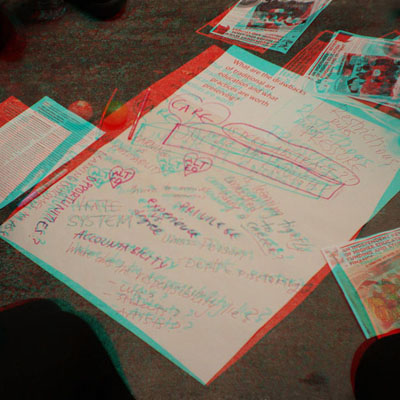 [ART&CRITIQUE] RADICAL PEDAGOGY RESEARCH & READING GROUP
[ART&CRITIQUE] RADICAL PEDAGOGY RESEARCH & READING GROUP
What is alternative art education?
Sunday, 24 March 2019, 2-4pm
Ugly Duck, 49 Tanner St, London SE1 3PL
Alternative Art School Weekender 22-24 March
All welcome
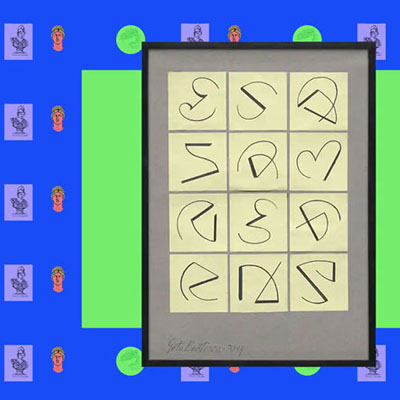 [ART&CRITIQUE] ART CRAWL
[ART&CRITIQUE] ART CRAWL
Mayfair to Fitzrovia: Joy, Dance, Magic
Saturday, 30 March 2019, 13:45 – 17:00
Meet 13:45 at Lévy Gorvy, 22 Old Bond St, Mayfair, London W1S 4PY
Curated by Eva Ruschkowski
Free, booking via Eventbrite
![Philip Guston [1973] Painting, Smoking, Eating. Oil on canvas, 196.8 x 262.9 cm.](https://videomole.tv/wp-content/uploads/2018/03/Philip-Guston-1973-Painting-Smoking-Eating.-Oil-on-canvas-196.8-x-262.9-cm_thumb.jpg) [OPPORTUNITIES & ANNOUNCEMENTS]
[OPPORTUNITIES & ANNOUNCEMENTS]
March 2018
The list of opportunities,
open calls, deadlines,
announcements & vacancies
is updated regularly.
IMAGE CREDITS
Flyer for SYMPOSIUM#34 Jared Diamond: Collapse, by Tere Chad.
Sophia Kosmaoglou [2017] Art Skool Co-op Poster.
Workshop, First Alternative Education Open-Day 2017. Photo by School of the Damned.
Flyer for ARTCRAWL#16 Mayfair to Fitzrovia, by Eva Ruskowski.
Philip Guston [1973] Painting, Smoking, Eating. Oil on canvas, 196.8 x 262.9 cm.
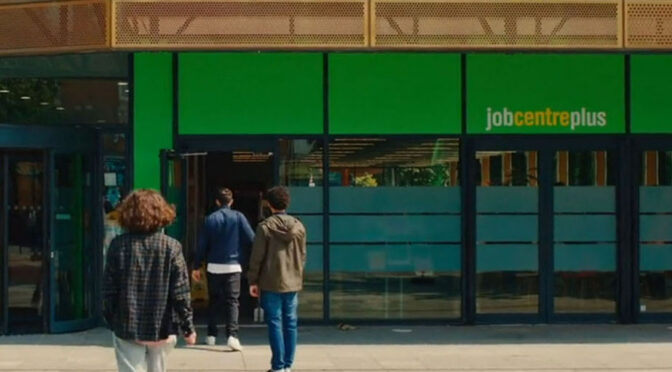
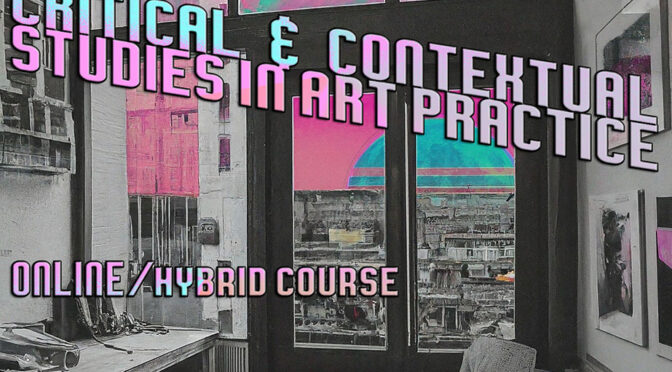
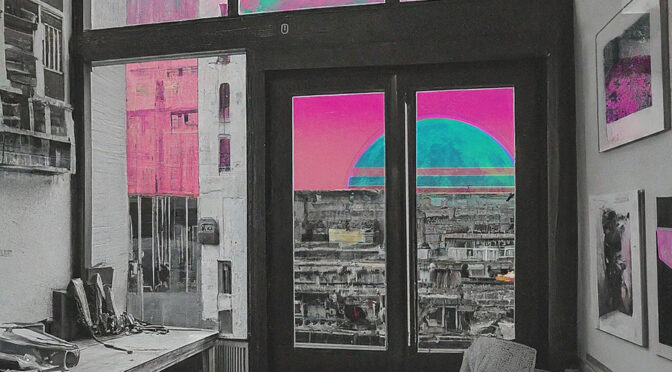
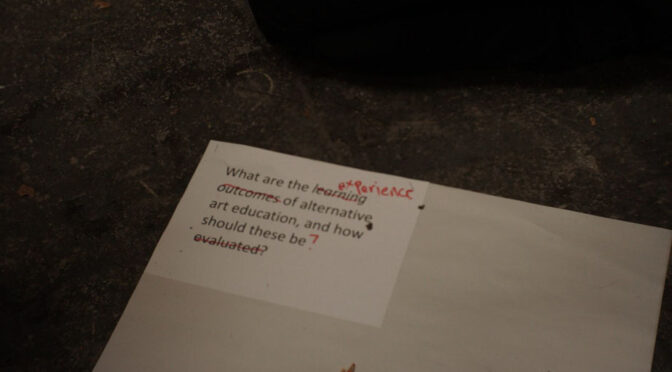
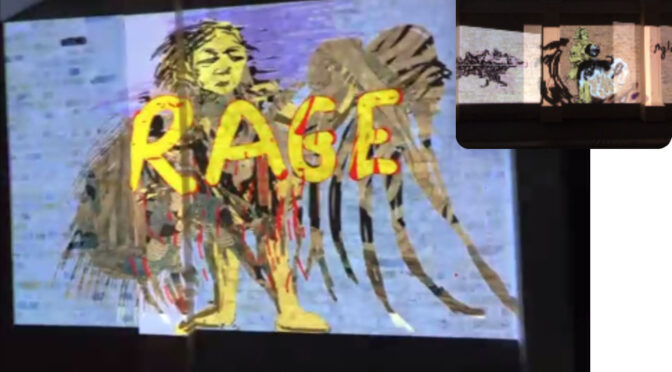
![Nalini Malani [2020] Can You Hear Me. Whitechapel Gallery, London. Screenshot of hybrid visit to the exhibition](https://videomole.tv/wp-content/uploads/2022/09/Nalini-Malani-2020-Can-You-Hear-Me-Whitechapel-Gallery-London.-Screenshot-from-a-hybrid-visit-to-the-exhibition_5156.jpg)
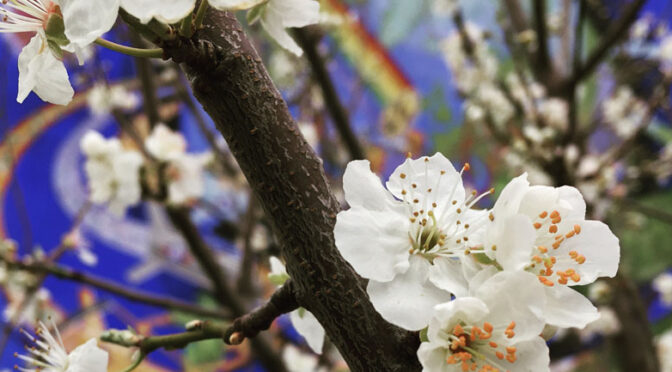
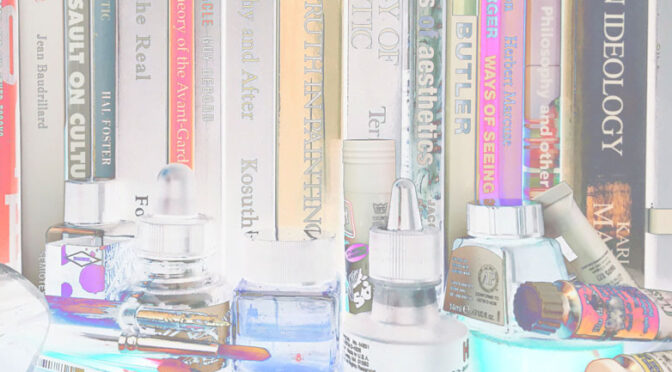
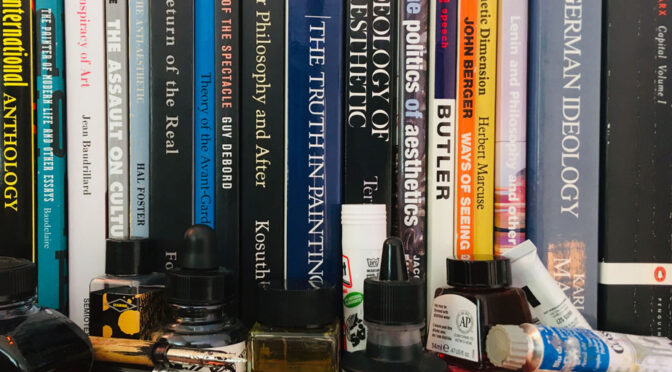
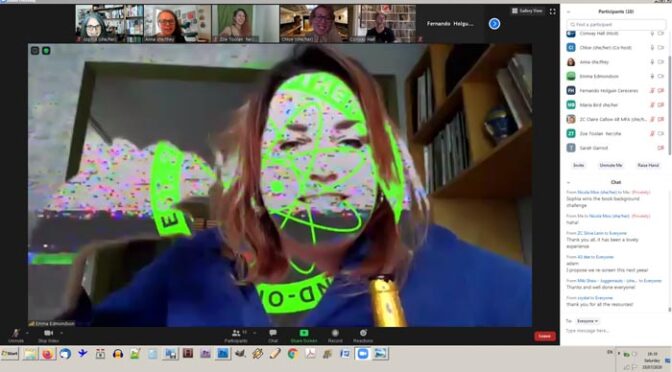
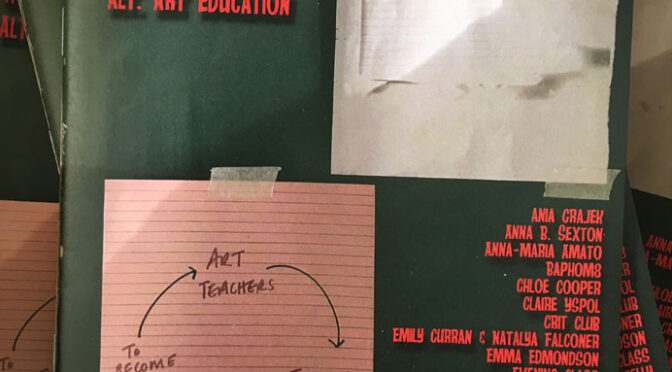
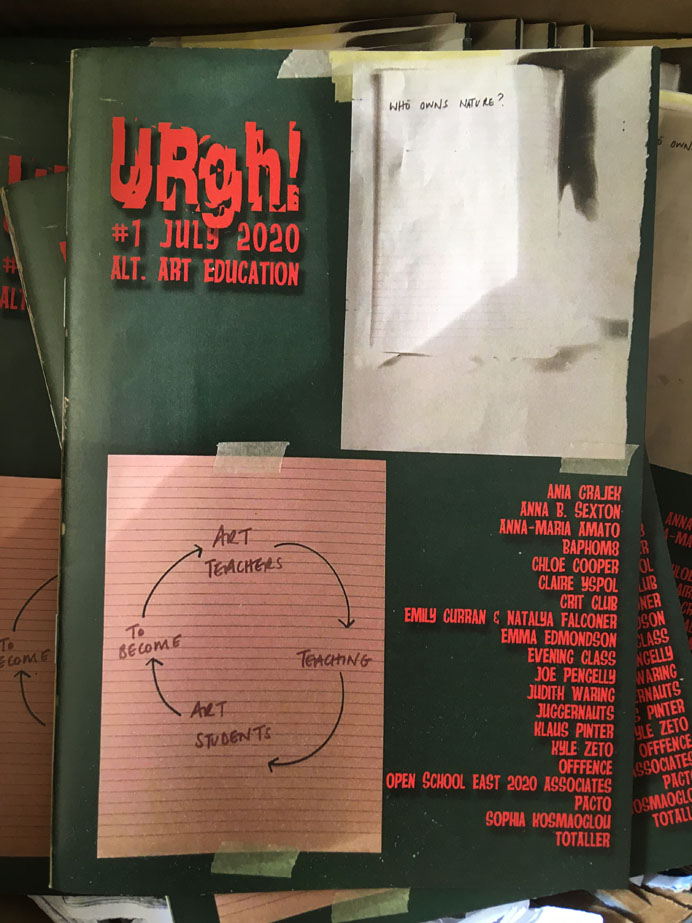
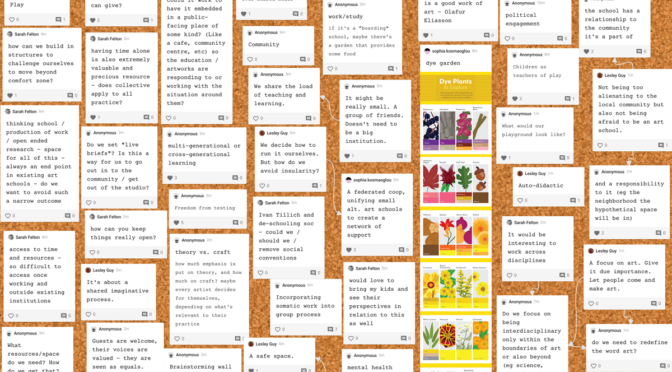
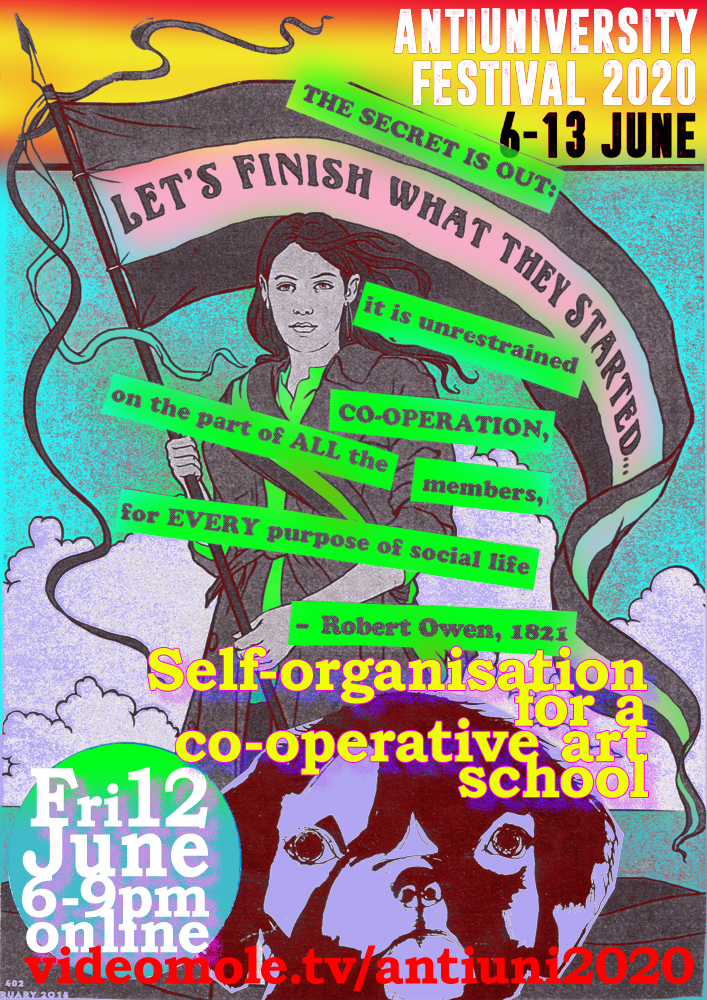
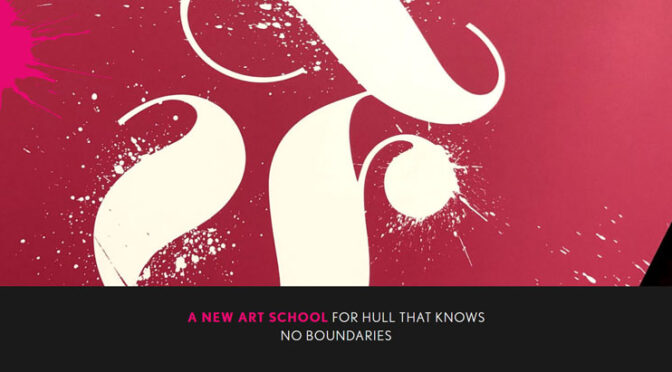
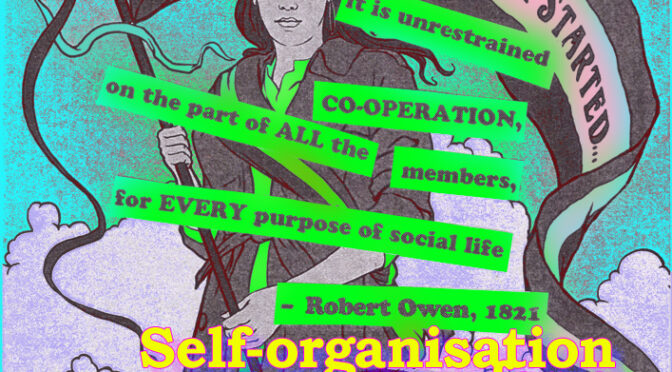
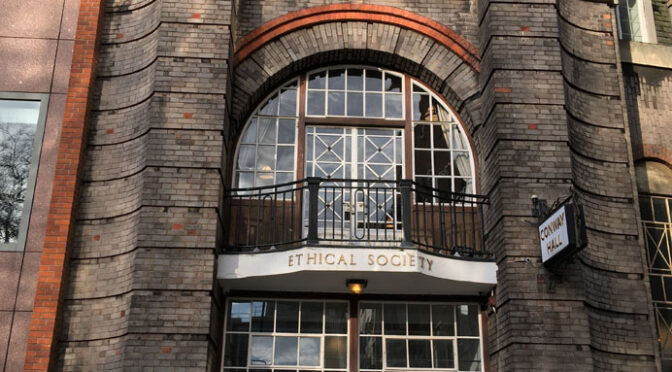
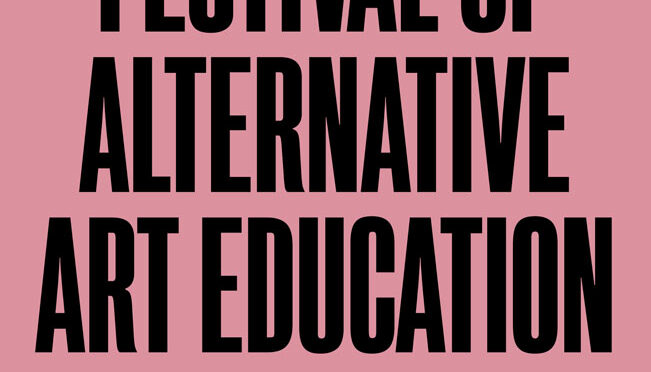
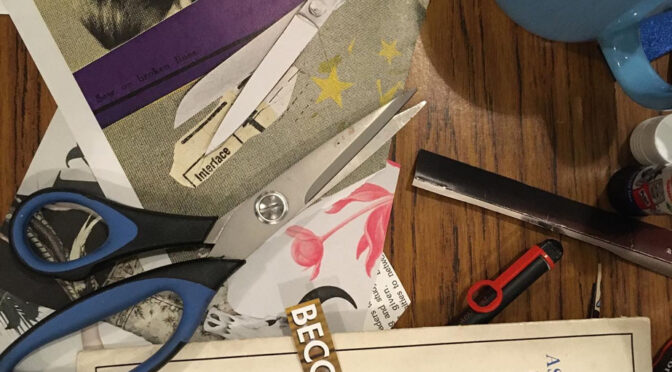
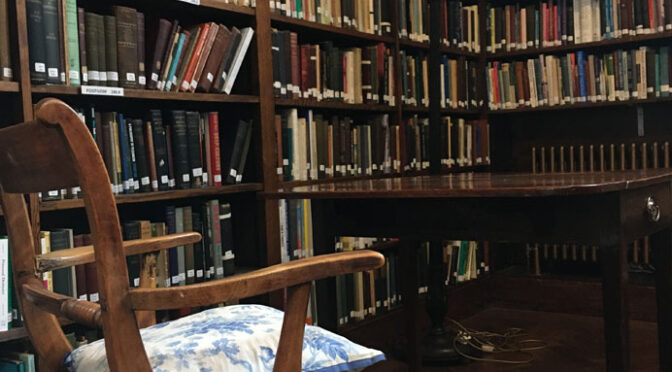
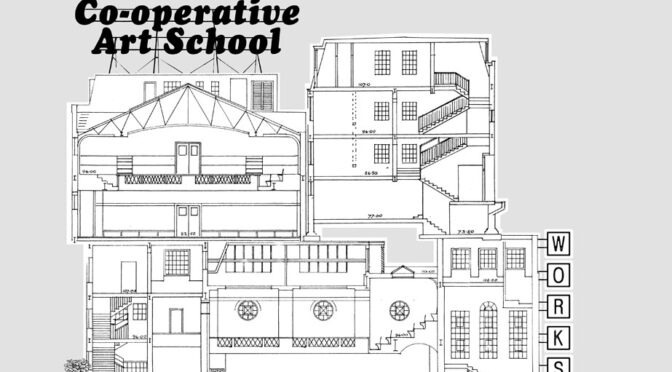
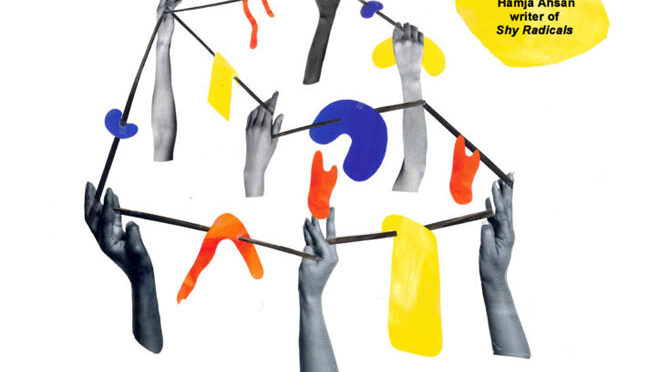
![[SYMPOSIUM]#34 Jared Diamond Collapse. Flyer by Tere Chad.](https://videomole.tv/wp-content/uploads/2019/02/SYMPOSIUM34-Jared-Diamond-Collapse.-Flyer-by-Tere-Chad_thumb.jpg)
![Sophia Kosmaoglou [2017] Art Skool Co-op Poster_thumb](https://videomole.tv/wp-content/uploads/2019/07/ARTCRITIQUE-2017-Art-Skool-Co-op-Poster_thumb.jpg)


![Philip Guston [1973] Painting, Smoking, Eating. Oil on canvas, 196.8 x 262.9 cm.](https://videomole.tv/wp-content/uploads/2018/03/Philip-Guston-1973-Painting-Smoking-Eating.-Oil-on-canvas-196.8-x-262.9-cm_thumb.jpg) [OPPORTUNITIES & ANNOUNCEMENTS]
[OPPORTUNITIES & ANNOUNCEMENTS]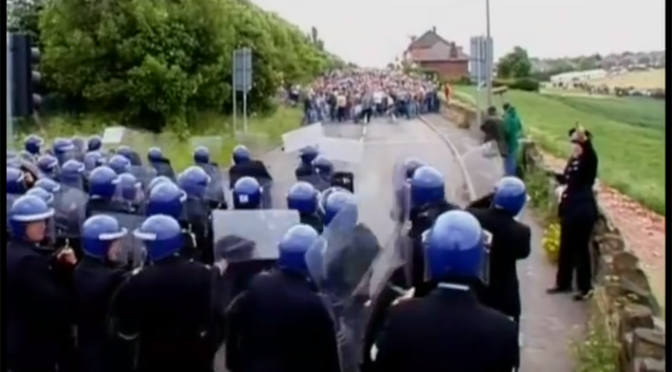
![Jeremy Deller and Mike Figgis [2001] The Battle of Orgreave.](https://videomole.tv/wp-content/uploads/2019/01/Jeremy-Deller-and-Mike-Figgis-2001-The-Battle-of-Orgreave_thumb.jpg)
